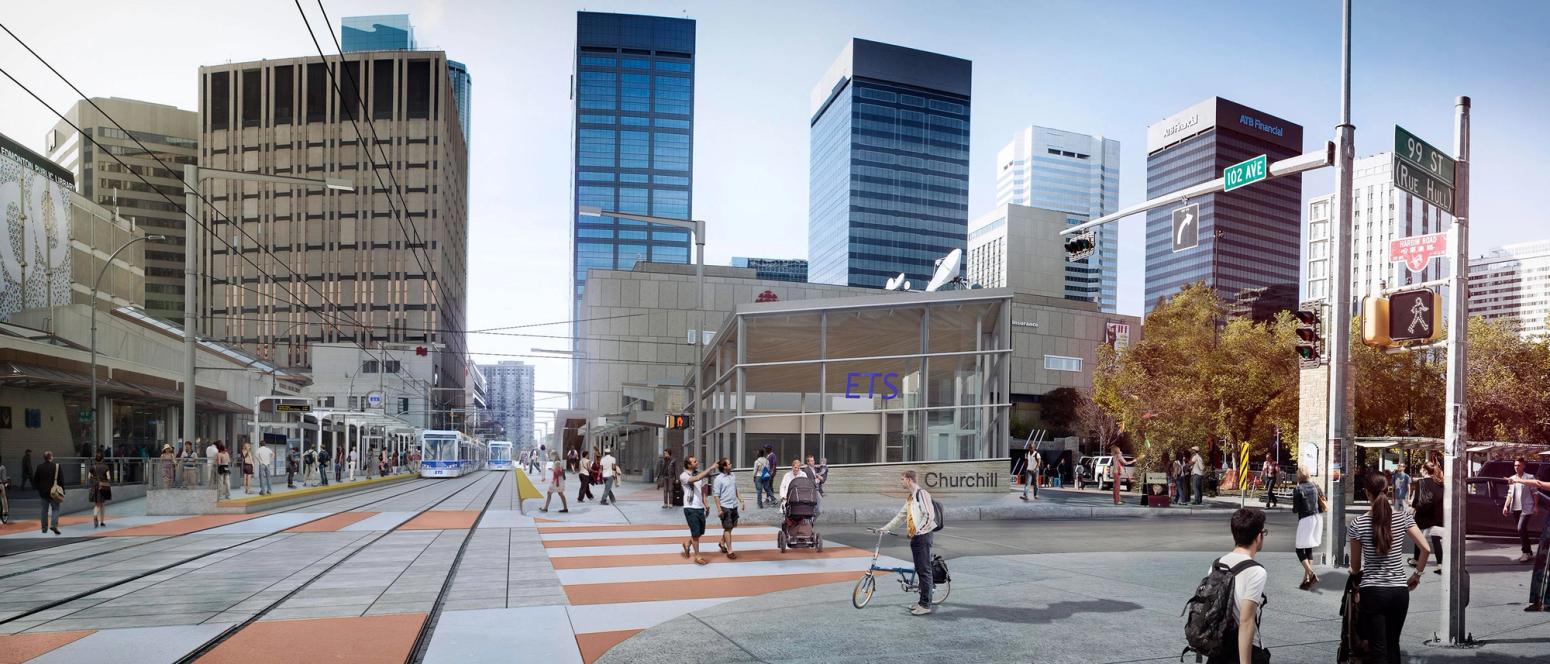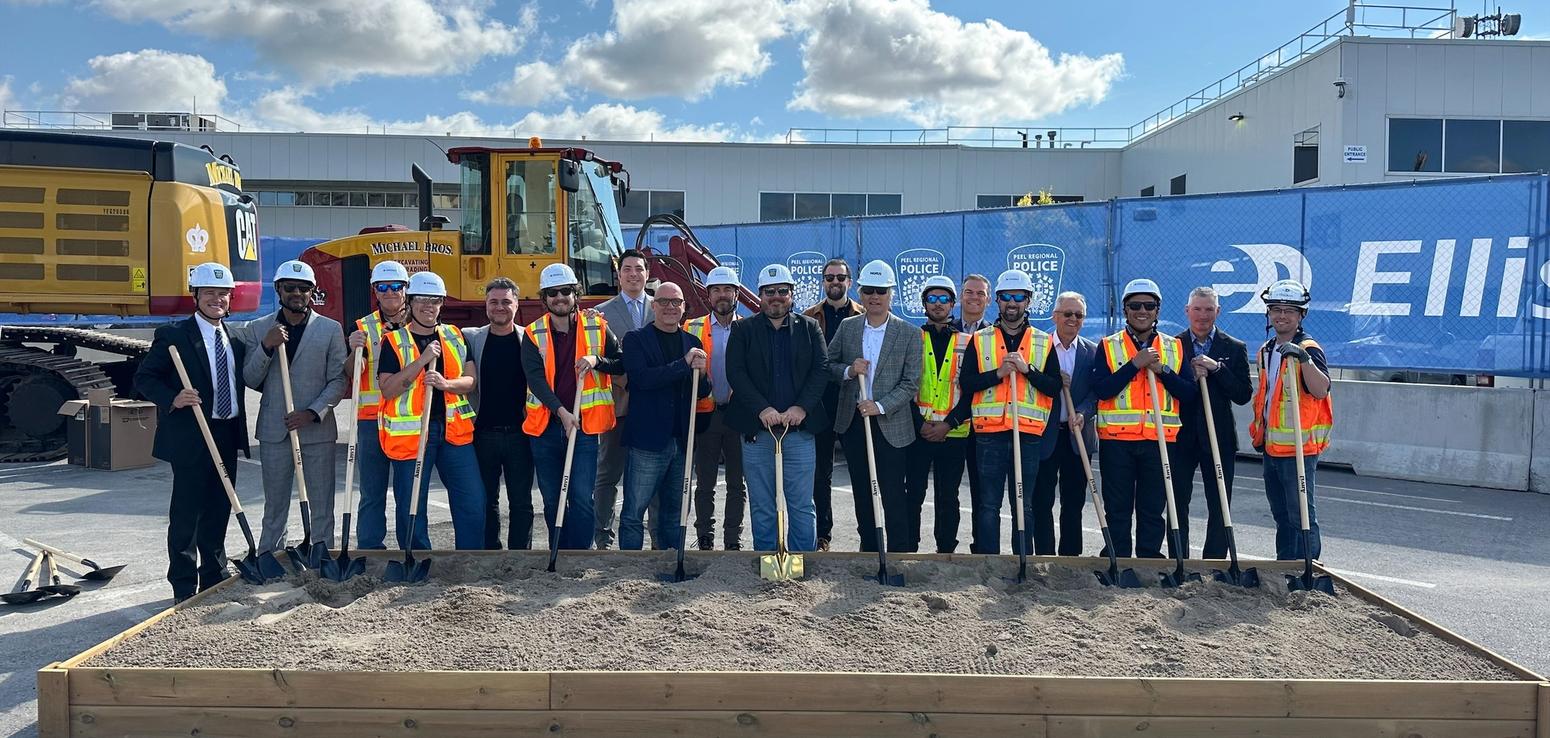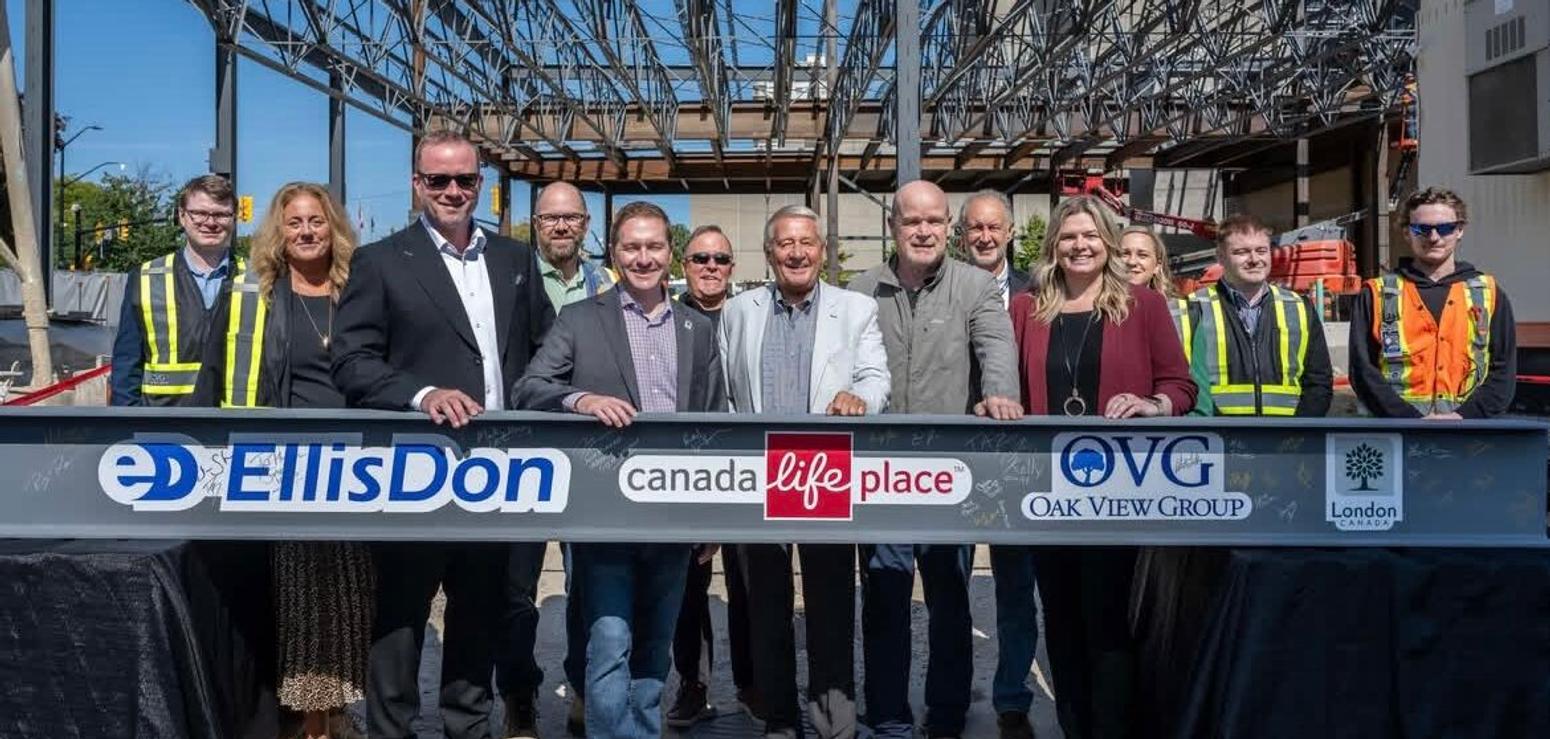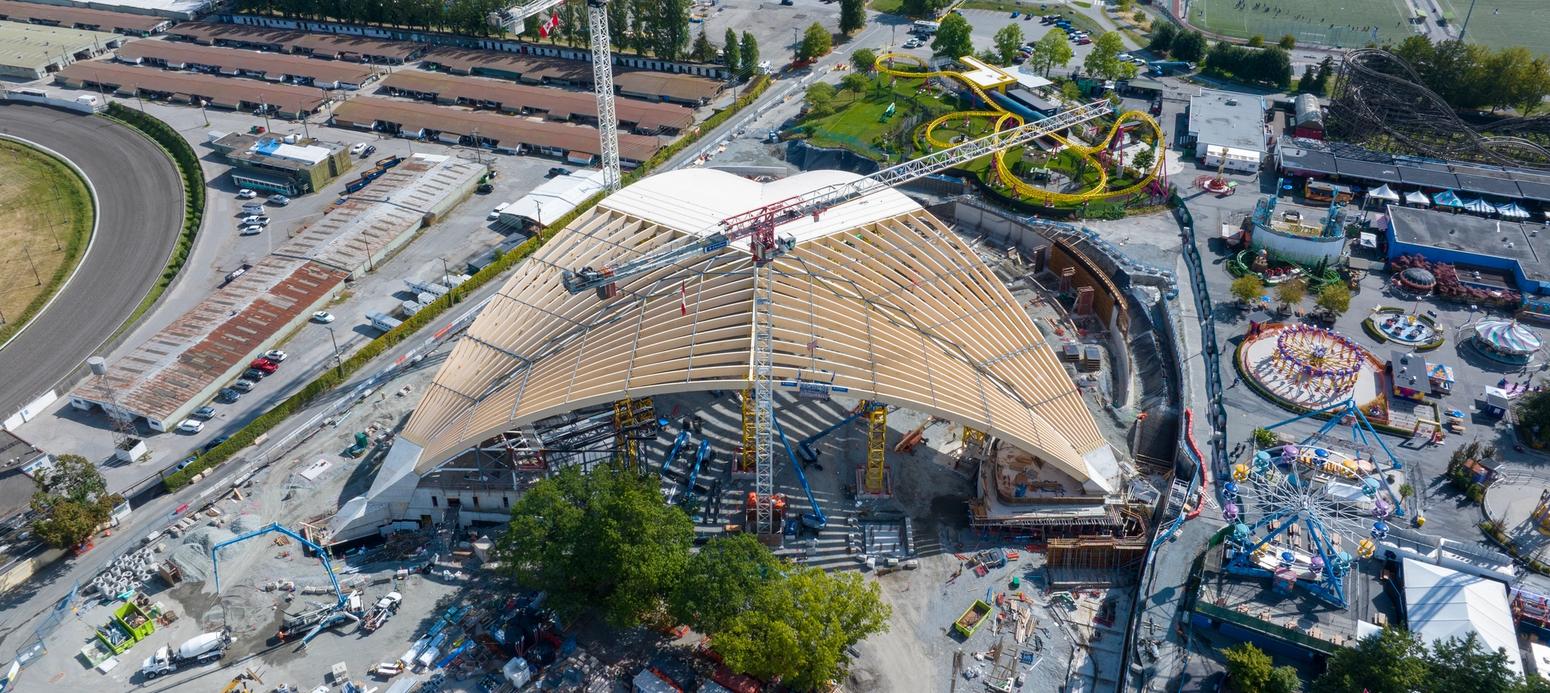News
Valley Line LRT Project Helps EllisDon Ride Out Alberta Recession
Written by Gary Lamphier for the Edmonton Journal
The last time I sat down with Geoff Smith, the straight-shooting CEO of EllisDon Corp., Canada’s second largest construction company, Alberta’s economy was on a tear.Oil prices were just below $100 US a barrel, thousands of newcomers were flooding into the province in search of jobs, and economic growth was ripping along at nearly five per cent a year.Besides its healthy portfolio of major commercial and civil projects in Alberta’s two big cities, the London, Ont.-based company was also hoping to ramp up its pipeline of energy work, after acquiring Fort Saskatchewan’s PME Group in 2012.With the future looking brighter than ever in Alberta — the company’s biggest market, outside of Ontario — the 65-year-old firm held its first-ever board meeting in Edmonton, and then hosted a swish social event for the city’s movers and shakers.That was in September 2014, but it seems like a lifetime ago. In the intervening two years, oil prices have crashed — not once, but twice — Alberta’s economy has endured the worst recession since the 1980s, energy investment has fallen off a cliff, new pipeline projects have remained stalled and provincial jobless rates have soared.In downtown Calgary, where EllisDon is now completing construction of the 56-storey Brookfield Place office tower, massive energy sector layoffs have hollowed out the city’s once-vibrant core. Office vacancy rates are currently on track to top 25 per cent by next year, the highest level in history, according to a new report from Barclay Street Real Estate.For a province that long served as Canada’s primary economic engine, creating good middle-class jobs for hundreds of thousands of job-seekers from the Maritimes to British Columbia, Alberta’s economic crash has been brutal, painful and humbling.The Trudeau government’s policies haven’t helped. Its moves to block or delay new pipelines and its vow Monday to impose a minimum national carbon tax — rising to $50 per tonne by 2022 — will hardly spur new investment, especially with no national carbon tax south of the border.So when I met with Smith and his Edmonton region lieutenant — vice-president Michael Kazda — for a catch-up chat Monday, I was expecting a tale of misery. But that’s not what I heard.Turns out EllisDon is doing just fine these days, all things considered. Not great, but OK, thanks to its work on major transit projects such as Edmonton’s $1.8-billion Valley Line LRT project, which is due to be finished in 2020, and Toronto’s $5.3-billion Eglinton Crosstown LRT project, which is slated for completion in 2021.Those projects have enabled the company to weather Alberta’s ongoing economic storm, while waiting for the Trudeau government’s promised deficit-funded infrastructure spending program to kick in.“I want to be a little bit careful about how I say this because it is a tough time. But we’ve had a pretty good couple of years here, mainly because of our win on the Valley Line LRT project,” he says.“It’s a multi-year project, so that was a huge win for us. Obviously, we have a partner in Bechtel, but we really went after it hard, and we know Bechtel will be a good partner. In terms of our relationships and our reputation, EllisDon intends to continue being a long-term member of the community here, and that’s the approach we’re taking.”EllisDon expects to generate revenues of just under $3.5 billion this year, making it the second-largest construction firm in Canada behind Edmonton-based PCL Construction. PCL posted revenues of some $8.5 billion in 2015, according to On-Site magazine, an industry trade publication.“We have a revenue target of $5 billion and hope to get there in three or four years. Are we there yet? No,” Smith admits. “Have we grown the company year-over-year? The answer is no. We’re actually down a bit this year. But we see growth restarting because of this coming infrastructure boom, beginning in the second half of next year.”It’s not all sunshine, of course. Smith concedes that Calgary’s downturn has been far more painful than Edmonton’s, and he reckons the city’s office market is likely to be saturated for years to come. EllisDon’s Brookfield Place tower will likely be the last skyscraper to be built in Calgary for the forseeable future, he says.But more broadly, Smith sees signs that Alberta’s economic downturn may finally have passed the bottom.“We’re encouraged by what we’re seeing. Things seems to be stabilizing. We had the OPEC agreement (to curb oil production) last week, for instance. The short-term still looks tight, but we are optimistic about this market,” he says.“It’s not just because we won the LRT contract, although that helps. We’ve invested in Edmonton within the last year. We bought a smaller construction operation called Willow Spring, and we’ve just hired a senior Edmonton person to head up our industrial division. And we’ve just appointed (former Syncrude president) Jim Carter to our board,” he notes.“So that’s how I’d express our feelings about Edmonton. Short term, it’s going to keep being tough for a while. Long term, we’re optimistic. We’re investing and we’re going to continue to see growth.”






